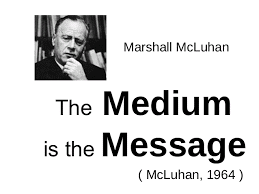 With the rise of Sen. Bernie Sanders (I-Vt) choosing to run as a Democrat instead of an Independent--so far, the question on whether he will choose to run on a third party ticket if he loses the Democratic Party nomination is worth considering. On the other hand, how viable are third-party candidates? In the past, 68 percent of Independents are more likely than Republicans and Democrats to agree there should be a majority third party, according to the Pew Study. Desire for a third party run and whether a third party can actually win are two different philosophies. Ross Perot ran in 1992 as an Independent Party candidate, was allowed in the debates, and, though he lost, Perot garnered 19 percent of the vote in the presidential election. Ralph Nader has run as a write-in, an Independent, and the Green Party candidate for a total of five attempts for the presidency, none successful. The barriers to winning a national campaign by third party candidates are significant including winner take all national election format, ballot access laws (code for “no access” as candidates need 20 percent support—among other myriad state requirements--to get on the ballot), debate rules disallowing third-party candidates, and campaign funding resources of the two major parties that dwarf other presidential candidates’ war chests. Still, could the message of a third-party candidate supersede the barriers? If Sen. Sanders runs as an Independent, Americans might see the rise of a third party at the same time the Republican Party becomes a niche party defined by cultural wedge issues that might do well among some conservative state primaries, but loses momentum in a national election. Voters who have become disillusioned with the political system and want change reflecting their need for economic equality in wages and social mobility; campaign finance reform; universal health care; and education access based on desire, not economic privilege to mention a few could turn the tide in 2016. The Middle Class and low income individuals are not adequately represented in legislative bodies—thanks to gerrymandering in many states. The rise of the corporate take-over of government systems exemplified by out-of-control campaign donations to politicians together with the US Supreme Court decision of Citizens United injects millions of dollars into political campaigns forcing candidates in both major parties to participate just to remain viable to either win elections or keep their Congressional seats. All of which creates an atmosphere of distrust of government and apathy among American voters. A third-party selection offers a choice and a departure from the status quo in a political landscape of skepticism where campaign finance reform is like the weather—everyone talks about it, but no one does anything. Additional Resources National Journal US History http://www.people-press.org/files/legacy-pdf/06-21-12%20Voter%20Attitudes.pdf http://individual.utoronto.ca/markfederman/article_mediumisthemessage.htm
4 Comments
Eileen
11/7/2015 04:40:52 am
Thanks Dava
Reply
Dava Castillo
11/7/2015 11:42:53 am
Thanks for reading and commenting Eileen.
Reply
Hannah
11/7/2015 01:07:05 pm
Thank you, Dava, for an interesting report.
Reply
Dava Castillo
12/7/2015 11:00:24 am
Thank you for reading and commenting Hannah
Reply
Leave a Reply. |
Dava Castillo
is retired and lives in Clearlake, California. She has three grown
children and one grandson and a Bachelor’s degree in Health Services
Administration from St. Mary’s College in Moraga California. On the
home front Dava enjoys time with her family, reading, gardening, cooking
and sewing. Archives
November 2015
|


